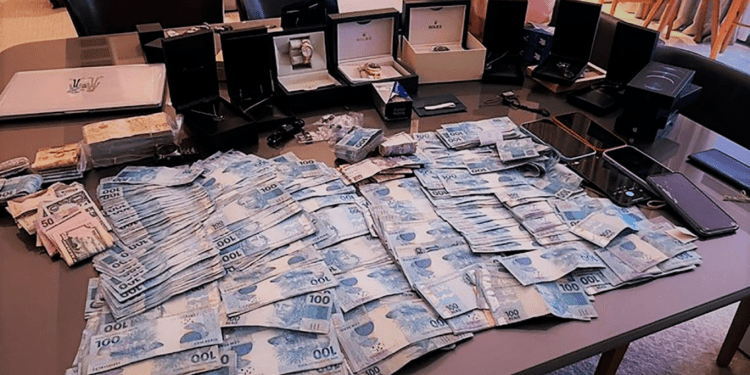Cryptocurrency scams have become the norm.
On the 6th of October, the Brazilian police, in an organized raid spread across three of Brazil’s federal states and 20 addresses, shut down the activities of a notorious crypto criminal organization.
The fraud network run by Francisco Valdevino da Silva, also known as “Bitcoin Sheikh,” is said to have scammed thousands of investors- home and abroad- off crypto-related funds worth $766 million (4 billion Brazilian reals).
Da Silva operated a digital asset investment platform that promised investors 20% returns for deposited capital.
It was the most convenient way to earn more quickly for individuals with little experience in the crypto industry and others who wanted massive gains. But it provided the perfect Ponzi scheme for Francisco Valdevino da Silva and his associates, who had been laundering digital assets for the past few years.
Yet Another Crypto Ponzi Scheme
The crypto space began experiencing its share of Ponzi schemes when the industry gained mainstream prominence.
Projects and investment companies are promising gullible and hasty investors with outstanding returns for little capital and no effort, banked on the existing crypto hype to gather attention.
The decentralized nature of blockchain eliminated regulations central monetary bodies had to follow and provided the umbrella for Ponzi schemes to slip through the cracks and avoid suspicions.
With a blend of users eager to invest their money, lax regulations, and immutability of transactions- it became easy for “supposed” project founders to set up a system that favored them and disappear whenever.
Regulatory bodies and finance authorities have doubled crypto operations over the years to reduce the prevalence of crypto schemes. Yet, users still fall prey to the promise of ridiculous high returns, trust unregistered projects and ignore the need for extensive research.
Da Silva’s Investment Offer To Scammed Victims
Alongside the 20% return on their investments, the scammers convinced investors that the establishment had a team of crypto experts committed to providing yield on their investments.
Da Silva had told investors that the organization owned fully-fledged crypto-related financial products and bolstered the lie through the help of promotional advertisements and fake licenses.
According to local reports, they had also developed and marketed their cryptocurrencies, which had no liquidity or backing.
Among the victims were celebrities like Sasha Meneghel, a Brazilian model who lost nearly $230,000. Meneghel, alongside other unnamed Brazilian soccer players, was defrauded.
“Operation Poyais”
The investigation launched into the criminal activities of Da Silva revealed that the ring had been involved in international crypto-money laundering over the past few years.
Worth noting- The operation’s name references a Scotsman named Gregor MacGregor.
Gregor poyais’s scheme has been called the “most brazen confidence tricks in history,” as he successfully sold bonds and land certificates to British and French investors for Poyais- a country that never existed.
Operation Poyais was conducted by 100 Brazilian police officers, with twenty searches and raids “across nation states, including Santa Catarina, São Paulo, and Rio de Janeiro.”
The laundered funds came to $766 million, with the Brazilian banking system serving as the transfer channel for their operations. The assets confiscated during the raid were gold bars, luxury vehicles, real estate, designer clothes, jewelry, timepieces, and other expensive items.
Speaking for his client, Da Silva’s lawyer stated the raid was the standard practice for investigative procedures relating to the situation. He added that his client was prepared to provide “clarification on his activities “to prove the effective regularity and lawfulness of business operations.”
The Bitcoin Pharoah Case
One thing you can say about Brazilian crypto scammers is they come up with the most interesting nicknames. In August 2021, police authorities in the country busted another fraudulent crypto platform and arrested its leaders.
One was Glaidson Acácio dos Santos (aka the Bitcoin Pharaoh). Santos, like Da Silva, had promised investors mouth-watering profit for their money. As expected of a crypto scam, the investors never got the interest.
It led to a lengthy legal battle and months of investigation. However, a decision was reached last month, mandating De Santos and his co-fraudsters to reimburse defrauded investors and creditors with $3.7 billion.














